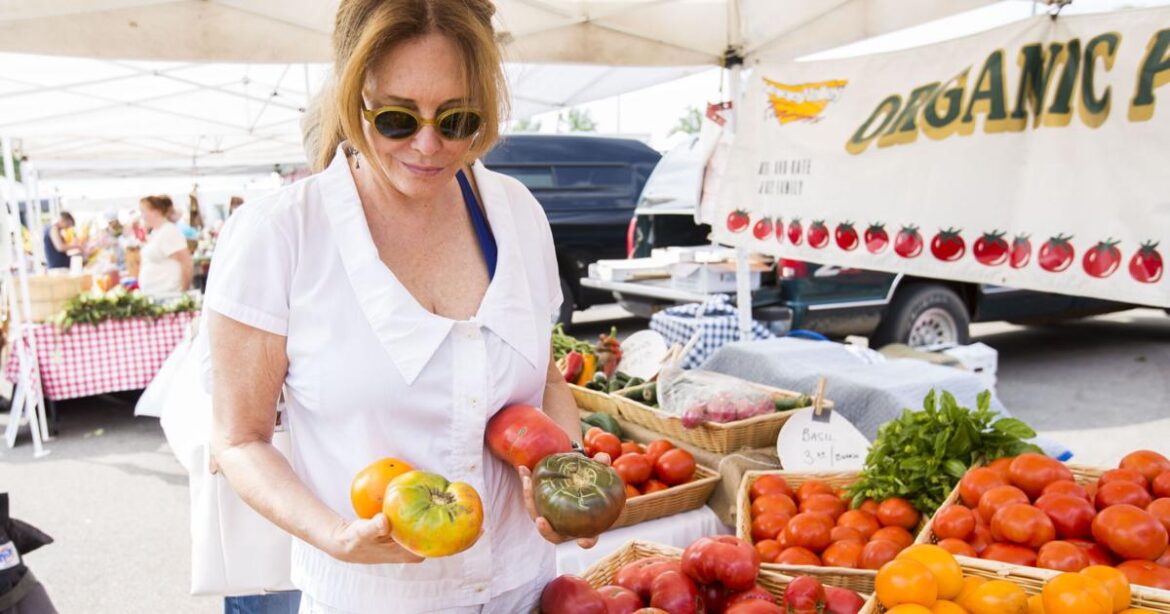Roberta Mell’s first question to her class of would-be Italian gastronomes sounded like a little test.
“Just say your first name, if you’ve been to Italy ‘Yes’ or ‘No,’ and I want you to name one authentic food,” Mell said. “If you haven’t been to Italy, that’s OK — just whatever you think is authentic.”
A few dozen adult students had gathered in a dark room in The French House near the University of Wisconsin-Madison campus. Yes, most of them had been to Italy; a few were about to go. They liked pasta and prosciutto and polenta.
To Mell’s apparent relief, nobody said “spaghetti,” or in fact anything that could be considered “Italian American.” These students had studied their saltimbocca.
Mell’s class on Italian Gastronomy, a first for UW’s Continuing Studies program, runs the first few weeks of August. The class addresses Italian geography, history, culture and language through la cucina povera (peasant food), aceto balsamico (aged vinegar) and Italian wine.
It’s surprisingly unusual for Continuing Studies to offer courses focused on food. This one, for $120, expanded once and then had a waiting list.
“Our language courses are primarily language and culture instruction,” said Sage Goellner, a faculty affiliate in the Department of French and Italian. “We do have a Spanish class with tapas, and I have held French immersion three Saturdays in a row at the University Club with French-inspired food.
“We would do language and culture with a little bit of food,” Goellner added. “This is turning it on its head, starting with the food as a window into the culture.”
A first-time instructor at the UW, Mell runs an heirloom tomato seed business in Italy and completed a master’s program in Italian food culture and communications. A former marketing executive, she moved from California to Italy seven years ago and now runs a gourmet tour company called My Cousin Emilia from her home in Parma, in the Emilia-Romagna region.
When she pitched the class, Mell’s topic was “why there is no such thing as Italian food.”
“It’s an expression never used by Italians,” she said. “We’re going to learn why. Italy is a very, very old land, it’s been inhabited for thousands of years, but it’s a very young country.
“These independent city-states had their own armies, their own language, their own cuisine, their own culture. If you travel the country from north to south, you can see these differences … in their own distinct approach to food.”
Over the course of the class, which began Aug. 1 and concludes next week, Mell planned to offer samples of Italian products: cookies and biscuits, wine and fine aged vinegar, parmigiano made from different types of cow.
Roberta Mell has brought 25-year-old Giusti Extravecchio vinegar from Italy to show her students in a new class at UW’s Continuing Studies program.
“Many foods are named after the town where they were first found in Italy,” Mell said. “It’s a reflection of civic pride.”
Throughout the first class, Mell spanned the Italian “boot” from the Piedmont and Trentino regions in the north to sunny Sicily in the south. In future classes, she planned to break down her lessons into regions.
In the meantime, she visited several local farmers’ markets. Italians are very interested in the idea of “nostrano,” or local food.
“I went to your local farmers’ market on Saturday,” Mell told her first class. “I was so impressed. I spoke to a lot of farmers about what they were doing and I saw the local produce.
“I’m so happy to be here, I’m really impressed with Madison.”
Goellner said she hopes Mell will return next summer, and the class will become a consistent offering.
“In the meantime, I would be talking with my colleagues in Spanish and German about looking at it as an approach,” Goellner said. “What Roberta is doing is really going deep into the experience. When you go as a tourist, unless you know people and places, you don’t get those kinds of authentic … experiences.”
Mell herself was pleased with her first group of students. She called them “buona forchetta,” which means someone who enjoys good food, literally a “good fork.”
“Buona frachetta can also mean someone who eats too much,” Mell said. “In Italy you have to be careful with the language, because some things can mean something else.”

